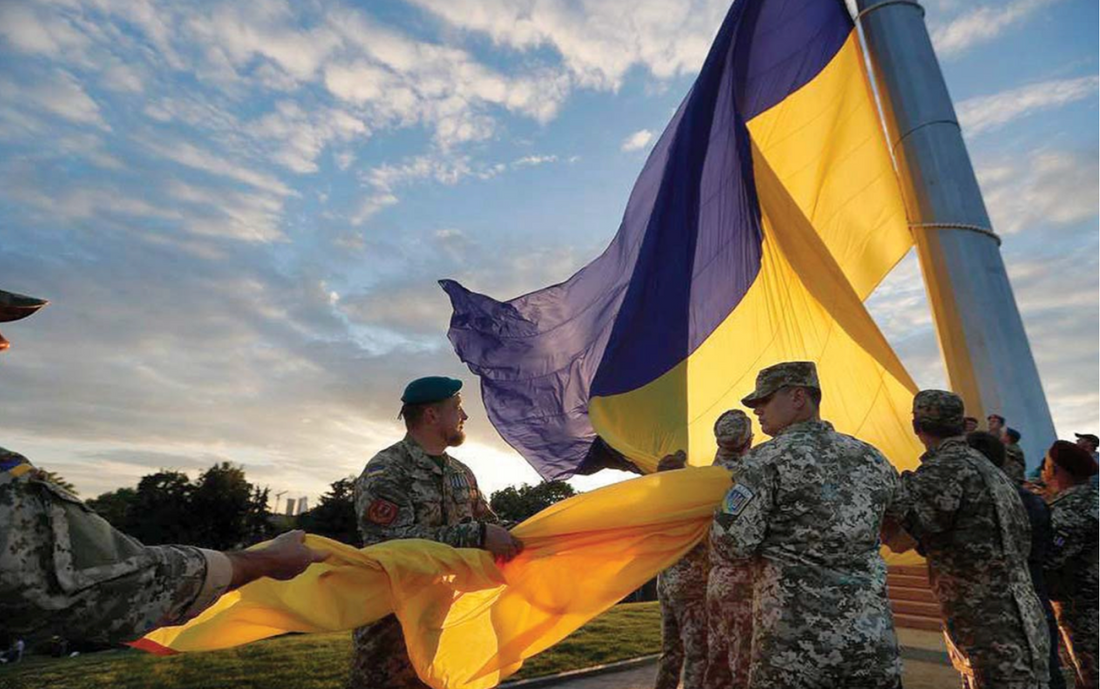
Ukraine: Some Hard Facts
by Carol Landau & Rebecca Garland
Since Russia invaded Ukraine in February, 2022, over 8 million people, or 18% of the population, have fled the country. Approximately 282,000 have ended up in the US. As Beautiful Day welcomes Ukrainians into our adult and youth programs, it's important for all of us to stay informed about what's happening in their home country. This article lays out some of the stark facts. We all need to understand as much as we can in order to best support our new Ukrainian neighbors.
According to interviews conducted by NPR, CBS News and the Washington Post, a sense of unreality prevails in Ukraine right now as people work hard to maintain their normal lives. In most places the buses are running, people are going to work, and stores and restaurants are open. You can see children playing in parks and moms shopping at local markets. But everyone is aware that business as usual could cost them their lives. The Russians have been dropping missiles and armed drones on civilian centers, hitting targets like a market in Kherson last Christmas Eve that killed ten people, or a popular pizza parlor in Kramatorsk a few weeks ago that killed 11 and wounded 56. Since the invasion began 18 months ago, over 16,000 civilians have been wounded and over 9, 000 killed. And more than 100,000 war crimes have been registered in the Ukraine, including indiscriminate bombings, the torture of civilians, rape of women and children and mass executions. Putin has now been indicted as a war criminal. Yet a trial is unlikely as it will require the actual arrest of Putin and other Russian leaders.

A woman walks through the Oleksiivska station in Kharkiv where thousands took shelter. (Jason Beaubien/NPR)
The war’s effect on children has been considerable. Over 1,500 have been killed or injured. The Ukrainian government estimates that 19,500 have been kidnapped and taken to Russia after Putin signed a decree that made it easier for Russians to “adopt” Ukrainian children. The Russian government is deliberately making it difficult to even identify them. For those who remain, their homes, schools and neighborhoods have been bombed and many have spent extensive time in shelters. When the Russians attacked Kharkiv, thousands of families took refuge in the city's extensive subway system. They remained there for months with some refusing to leave even after the crisis passed. Missile strikes have destroyed power grids, knocking out electricity and water. One mother says that she regularly hears her children asking for electricity in their nightly prayers.

A child copies Ukrainian soldiers standing at attention. (Vadim Ghirda: AP)
As with all protracted wars, Ukraine is experiencing a mental health crisis. The World Health Organization (WHO) estimates that one quarter of Ukrainians are dealing with major psychological issues related to trauma. This is undoubtedly an underestimate since an overall sense of anxiety and depression, rather than major mental illness, is very common. Ukrainian soldiers are especially vulnerable since most were not trained for combat and must serve for long periods of time. To date, more than 17,000 Ukrainian soldiers have been killed, each one with a story, each one with family members and friends who mourn them. Our trainees are also among those who mourn the loss of family and the growing devastation of their country.
These are hard facts to report and may be hard for some to read. But it's important to acknowledge our trainees' lived experiences and to bear witness to what their family members and friends are still facing. Beautiful Day is committed to hope and possibility, which we see every day in the faces of our trainees who are intent on rebuilding their lives. Yet we know that healing can best take place in the presence of others who are willing to see and try to understand, hard as that might be. Thank you for reading this far.

1 comment
I can’t begin to imagine experiencing such horror and evil.